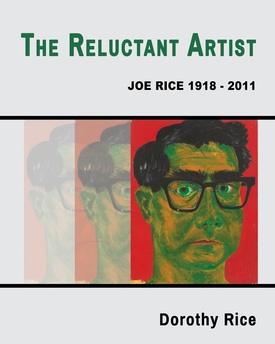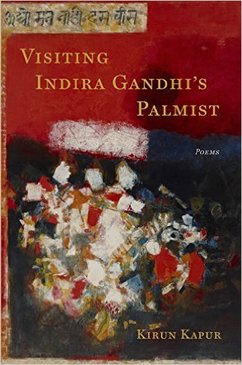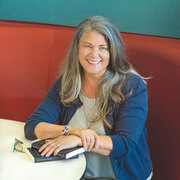 A while back, fellow writer Jackie Chappel interviewed me about my book, The Reluctant Artist. Here is the full interview, titled The Reluctant Artist explores the disconnect between fame and talent and here are some excerpts: Dorothy Rice’s art book/memoir The Reluctant Artist shares the story of her father, a talented artist active in the Bay area during the 1950s-early 1990s. Exploring a daughter’s fascination with her father’s passion, the book asks whether art should be for the artist or his public and, in turn, the disconnect between fame and talent. I caught up with Dorothy on the publication of her new book. Jackie Chappel: Dorothy, The most compelling part of your father’s story was his ambivalence to fame and recognition. In an age when everyone defines themselves by the number of likes and views we get, his attitude is a reminder of the values of another generation. To what extent do you think your father sought recognition for his art? Dorothy Rice: To my knowledge he did not seek recognition for his art to any extent at all. For most of his adult life he was pursuing degrees in art (BFA, MFA) and then, after graduating he always took college courses to keep active. So people were always seeing his work and I know that he had several offers to show and declined. When people came to our home, they would sometimes admire the work, and ask if they could buy something. He would just give it to them. When people came to our home, they would sometimes admire the work, and ask if they could buy something. He would just give it to them. JC: Do you think this was his personality or somewhat generational, reflecting the mores of that time? DR: Oh, I think it’s just a personality trait. He was very retiring in general and the kind of person who was most content being left alone. He literally spent most of my youth in the basement or his work room doing art. He also had strong views about the importance of humility, which he considered the highest virtue. He hated braggarts or boastful people more than anything. JC: Do you wish your father had worked harder to sell/promote his art? DR: Not really. I do wish he had been willing or able to talk about it more, to open up about it. For example, I have no idea of his inspirations or thought process. As someone with creative aspirations myself I would have liked to believe that he supported me in that way or was proud of what I might do. JC: Interesting. The conversations we don’t have with our parents. Do you think it’s (even) possible for artists today operate with the attitude your father did? DR: Well, perhaps not if they hope to make a living at it. He was a public school teacher and that’s how he supported his family and then in retirement he had a pension, so it was never about money for him. But to make a living at art (or writing) is another matter. It might be pretty difficult to earn enough money to support yourself without some degree of self-promotion or interest in the external world. I think there are plenty of artists/writers out there for whom their art is a very private matter. We may never know of them but it doesn’t mean they aren’t out there doing great things. That is one of the things my father really makes me think about — the fact that creative people who accomplish great things are all around us, but many remain unknown during their lives and after. That is one of the things my father really makes me think about — the fact that creative people who accomplish great things are all around us, but many remain unknown during their lives and after. JC: A lot of famous artists, outliers perhaps, gained fame and notoriety after their death. And The Reluctant Artist in fact is bookended by references to Van Gogh, who died before his art gained the notoriety it does today. To what extent do you think the narrative of the artist who toils away in obscurity to be discovered posthumously survives today? DR: I think it continues to be one of the pervasive and alluring fantasies or possibilities out there. Certainly people are fascinated by the notion that someone like Van Gogh and so many others toiled throughout their life, in poverty to a great extent, and now their work is invaluable. Art is a strange thing. In my experience, it is the rare person who forms their own opinions about the arts, absent what critics and “experts” have to say. JC: Who are your main supporters? How do you deal with naysayers? DR: My older sister is my number one fan. She seems to love everything I do, so much so that I don’t always trust her opinion, though it’s sweet! I think mainly a lot of people don’t understand and in particular don’t appreciate how hard it is to get published as a new writer. When I tell people I write or that I’m working on a book, they seem to expect to see it in the bookstore within a few months! Rejection does get me down. Actually, I am working on cultivating more of my father’s attitude, of writing because it is what I do, because when I am writing, and it’s going well, there is nothing better. I work at separating outside validation from the work and why I am doing it. JC: That’s hard though because if we are trying to communicate then outside validation tells us we’ve communicated our message successfully, right? DR: Yes, it’s for sure a daily struggle. But, I do believe that first and foremost the writing must please the writer, must be the best I can make it, in my own judgement. What happens after that is, to a great extent, out of my hands. If there is universality to it (as there often is with creative nonfiction) and others read it and find resonance, then of course that feels amazing, but it starts with an audience of one. JC: Ok, last question: What would you say your BRAND is? (You know, we’re all supposed to have one now?) DR: Oh God. JC: LOL! DR: As a 62 year old woman who struggles with being an introvert (much like my father) I don’t do too well with such concepts. People do tell me that they recognize my writing, that they recognize my voice from piece to piece. That pleases me. Now it’s a matter of finding readers who like that voice!  And here is another interview by Jacqueline Chappel, this one with poet Kirun Kapur, author of Visiting Indira Gandhi’s Palmist (Elixir Press, 2015), winner of the 2013 Elixir Press Antivenom Poetry Award. Kirun Kapur's debut volume, Visiting Indira Gandhi's Palmist, ricochets from Partition-era India to Biblical pastorals, from American bars to the battlefield of the Bhagavad-Gita. By turns lyrical and narrative, unflinching and funny, the collection examines the harrowing collision of love and violence as it arises in families and nations. In these intense, beautiful poems, Kapur introduces us to an astonishing range of characters--mothers and fathers, princes and soldiers, lovers and daughters--as she sets out to explore our most fundamental stories and our most enduring human bonds. For related posts, visit my art blog, here.
0 Comments
Leave a Reply. |
Dorothy, author of GRAY IS THE NEW BLACK, blogs about the challenges and opportunities of being a woman and a writer of a certain age in a youth-centric universe.
categories
All
archives
July 2024
|
